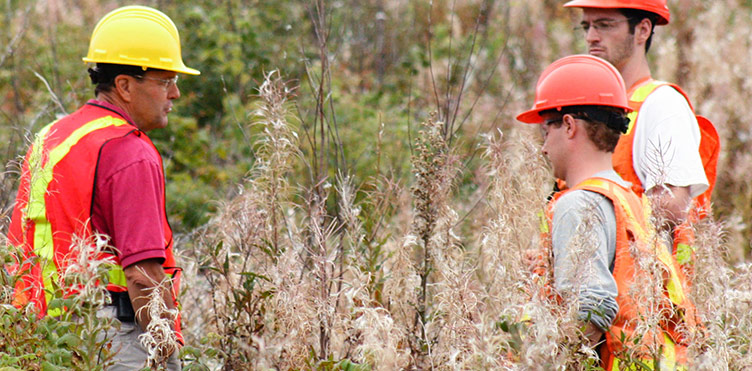Master of Forestry (MF)

In the MF program, you will study forestry at an advanced level through approved course work and by completing and presenting a major research report on a topic you and your supervisors develop.
You will have the opportunity to study in a number of areas that are important to the forestry industry including forest management, forest fire and insect management, climate change, wildlife conservation and innovative wood products.
Typically, MF students are largely self-funded, with some research assistance funding provided through the Faculty (~$3K), and you have the option of studying full-time or part-time.
There are two options within the Master of Forestry graduate program.
1-year report-based Master of Forestry
The 1-year report-based Master of Forestry (MF) is for those with an undergraduate degree or background in forestry looking to upgrade to a graduate level degree.
- Choose your 24 credit hours (ch) of courses to suit your professional and technical needs, and complete a 6 ch report under the direction of a supervisor and supervisory committee.
- Up to 50% of the 24 ch of coursework (approximately 4 courses) can be taken at the undergraduate (3000 or 4000) level. The remainder must be at the graduate (5000 or 6000) level. For a listing of potential courses, see the undergraduate and graduate forestry course listings.
- Students can also select courses from outside of the faculty, in consultation with their supervisor (and is subject to any additional course or faculty requirements).
- Each student requires a faculty member supervisor for their 6 ch research report, and two additional members on their supervisory committee.
16-month report-based Master of Forestry
Registered Professional Forester (MF-RPF) stream
The 16-month report-based Master of Forestry is for those lacking previous forestry experience and have completed an undergraduate degree in natural or life sciences.
- Complete a structured set of courses to meet the competencies required to be eligible to qualify as an RPF in any Canadian province after graduation.
- You will also complete a 6 ch report under the direction of a supervisor and supervisory committee, collecting the data and information required for a forest stewardship management plan on a land base.
Your career
Forestry management continues to rank in the top three professions in Canada by Macleans, and only shows increased growth. A graduate degree in forestry from UNB can help you secure one of the many available forestry jobs across the country and beyond.
Forestry offers many exciting career paths in the natural resource sector, including:
- Forest operations manager
- Forest GIS specialist
- Forest/environmental consultant
- Environmental protection specialist
- Land use planner
- Biostatistician
Next steps
Take the next steps to advance your education and career
